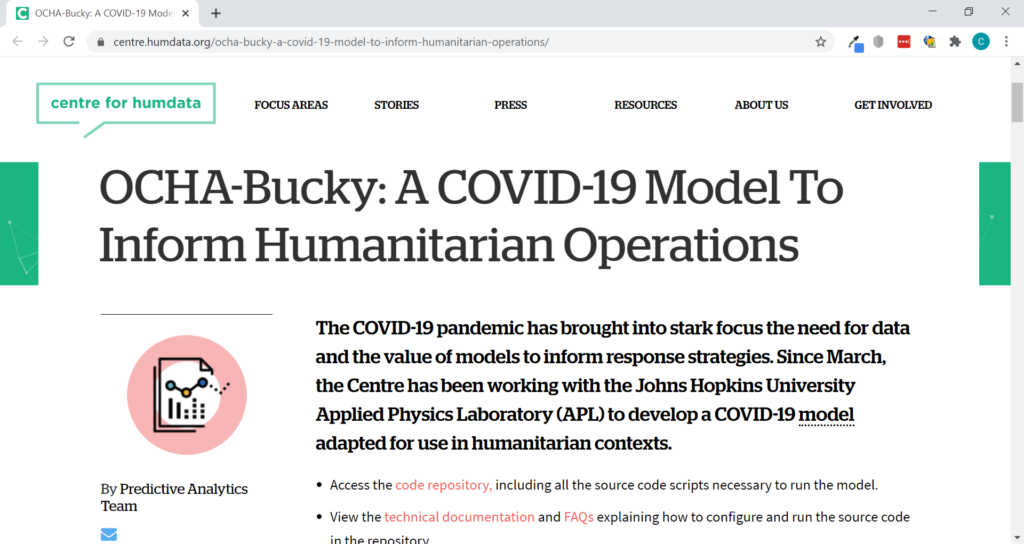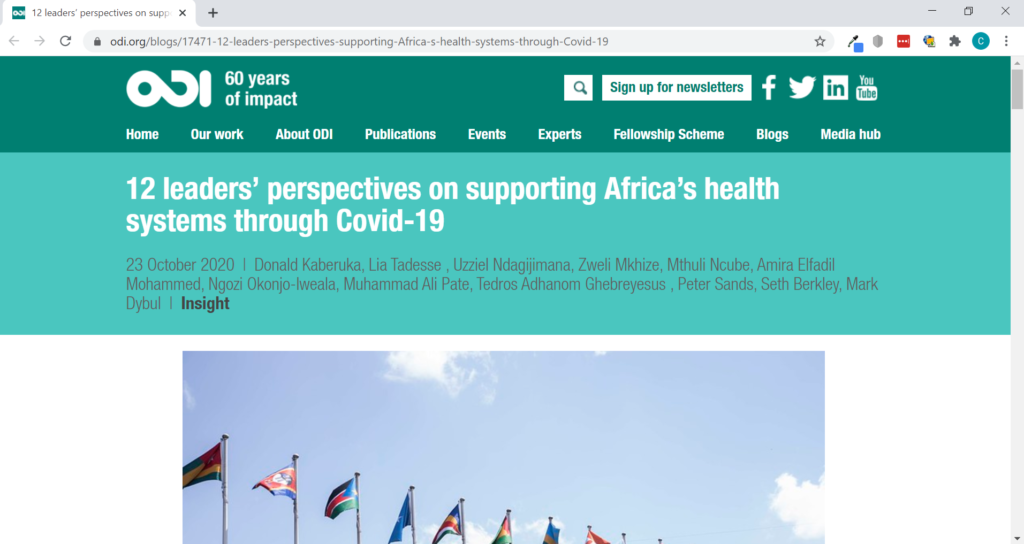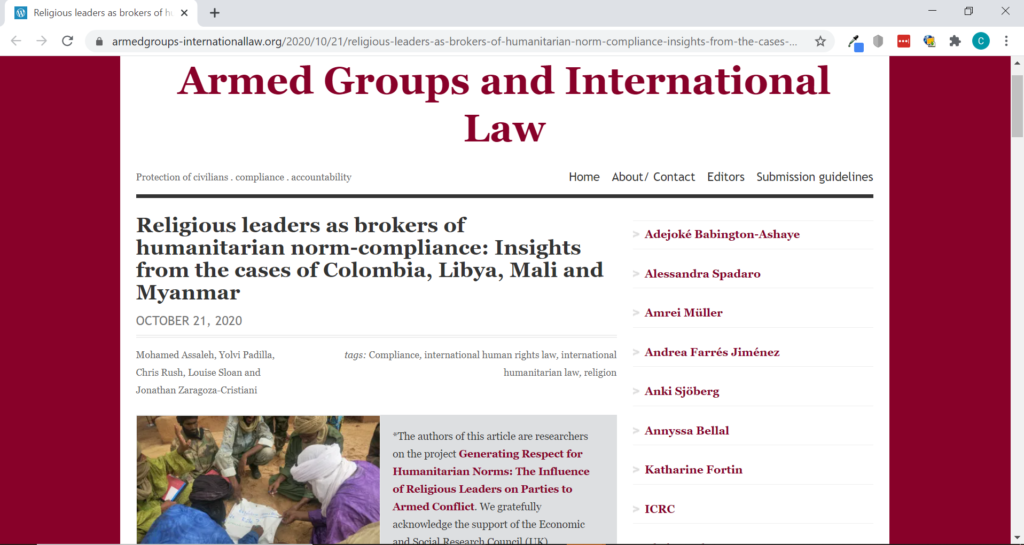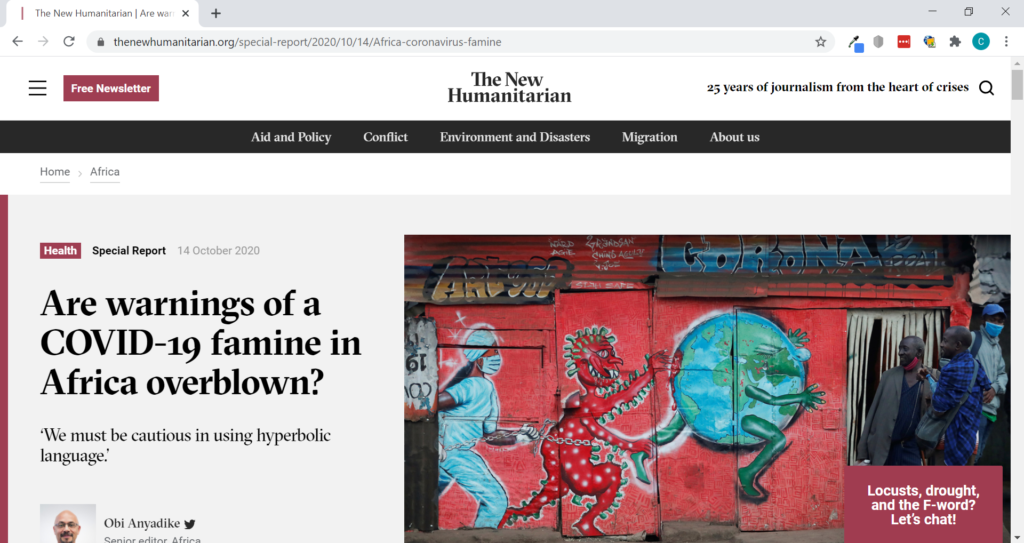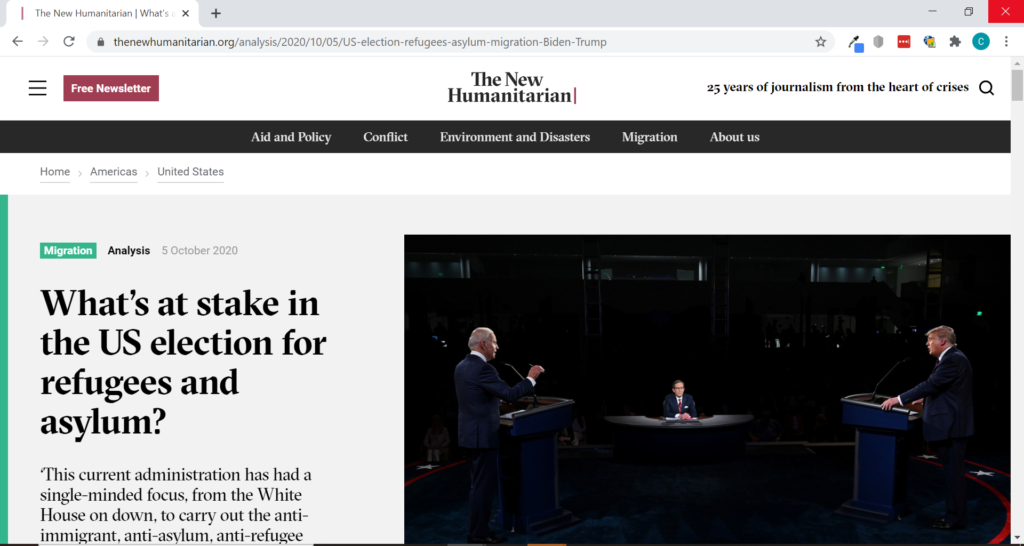Introducing perspectives, health systems and a data model: the five articles to read as humanitarian in October 2020
October was a month so much happened it was a tough call to select the five articles for my challenge I started last month. Hence when having time for a tea, or coffee. Hereby my selection for October 2020.
For those knowing me, it has been over 10 years since I started to focus on data-driven innovation and tech in aid. Making tech work for our operational challenges to improve informed decision making (which has lead to others calling me a humanitarian HDMI – USB cable). It wont be a surprise I will every now and then select articles regarding data driven work or tools. Tools or systems I hope that if we look back in time, a years ahead might have had a huge influence or changed our systems. Something I work on 24/7 personally too myself as well. I currently give my heart and soul to Solvoz – in collaboration with the Aidinnov Foundation (going live in November) – providing open access knowledge in a solution’s catalog integrated with a procurement workflow. At our release this month, our solutions catalog focuses on COVID-19 related use cases and solutions.
During the current pandemic, the five to read from October obviously also cover COVID-19 in humanitarian settings. First of all I selected a data driven project and blog to highlight from the Humanitarian Data Centre. In addition a great collection and overview of 12 important perspectives on supporting African’s health system through COVID-19 by ODI. The third an article from a blog on Armed Groups and International Law called: Religious leaders as brokers of humanitarian norm-compliance. The fourth and fifth are great articles published by the New Humanitarian. The first looks beyond COVID-19, addressing the question if warnings of a COVID-19 famine in Africa are overblown. Final article of this selection is called: What’s at stake in the US election for refugees and asylum?
OCHA-Bucky: A COVID-19 Model To Inform Humanitarian Operations
The COVID-19 pandemic has brought into stark focus the need for data and the value of models to inform response strategies. Since March, the Centre for Humanitarian Data (managed by United Nations Office for the Coordination of Humanitarian Affairs (OCHA)) has been working with the Johns Hopkins University Applied Physics Laboratory (APL) to develop a COVID-19 model adapted for use in humanitarian contexts. The result is a model, named OCHA-Bucky, that forecasts the number of cases, hospitalizations, and deaths over two or four weeks, at the subnational and national levels.
Please read the full article here and access the code repository (at github) access. For reviewing or downloading reports and view all links to technical documentation and read all about OCHA Bucky, see the full article and blog of the Centre of Humanitarian Data.
I can’t wait to read in 2021 or years later, how this model and work has been taken up in the response globally, about it’s impact and support.
12 leaders’ perspectives on supporting Africa’s health systems through Covid-19
Africa came into the fight against Covid-19 battling the world’s most acute public health threats, with just 1% of global health spending for 17% of the world’s population. Many governments are responding to the Covid-19 crisis by increasing spending, also in Africa. However, the Covid-19 crisis and the global slowdown means in many African countries that the expenditure increase is being financed through increased borrowing. Increased borrowing will cause African countries’ debt-to-GDP ratio to rise by 8%. As a result, the IMF (International Monetary Fund) is currently projecting that governments will need to scale back spending from 2021 onwards. This will leave many governments with difficult choices over whether to cut spending in other sectors to reallocate funds to health.
To inform these discussions ODI and the Global Fund to Fight AIDS, Tuberculosis and Malaria have brought together perspectives from eminent leaders from Africa and from the global health community on the key priorities for African governments in responding to Covid-19 and investing in health.
Please find the article here. It is a long read, but with great contributions of many: Donald Kaberuka, Lia Tadesse, Uzziel Ndagijimana, Zweli Mkhize, Mthuli Ncube, Amira Elfadil Mohammed, Ngozi Okonjo-Iweala, Muhammad Ali Pate, Tedros Adhanom Ghebreyesus, Peter Sands, Seth Berkley, Mark Dybul
Religious leaders as brokers of humanitarian norm-compliance: Insights from the cases of Colombia, Libya, Mali and Myanmar
What makes religious leaders influential? And, what precise factors maximize their influence on parties to armed conflicts? The article accessing these two questions can be read here, at the The Armed Groups and International Law blog.
Authors from the project Generating Respect for Humanitarian Norms wrote this article and accessed those questions. Research has suggested “that parties to conflict may better internalise humanitarian norms when they are underpinned by local norms and propounded by local influencers, such as religious leaders. Religious leaders can be considered ‘brokers’ that negotiate and adapt humanitarian norms to specific cultural settings and therefore act towards the symbolic validation (or, indeed, invalidation) of the rules”.
Read the article by Mohamed Assaleh, Yolvi Padilla, Chris Rush, Louise Sloan and Jonathan Zaragoza-Cristiani. Confirming that the potential of religious actors to be allies in the quest for compliance-generation in times of armed conflict and the need to promote effective engagement with them by the humanitarian sector towards this end.
Are warnings of a COVID-19 famine in Africa overblown?
“The new normal might be more difficult, more complicated than the past.”
Great article and analysis by Obi Anyadike, backed up by following stories of previously followed families in the New Humanitarian (award winning) Drought Diaries series.
Alarm bells have been ringing for months that COVID-19 could push fragile African countries “closer to the abyss” of famine as jobs are lost, local markets close, and poverty deepens. Aid agencies routinely list the coronavirus as a major factor in driving humanitarian needs, from the Sahel to Somalia, and don’t shy away from describing its impact as the “perfect storm”. But as an increasing number of African countries ease their punishing lockdowns, ending restrictions on internal travel, relaxing curfews, and reopening schools, do these dire warnings still hold true?
What’s at stake in the US election for refugees and asylum?
As the 3rd of November 2020 is approaching (and you might read this afterwards even), the world is watching who will become the new president of the USA. Eric Reidy wrote a comprehensive article (or projection) on what’s at stake in the US election for refugees and asylum?
The analysis provides a good overview regarding the refugee settlement situation, the border and so much more. One month to go, good read to see what is at stake, needed and where can we expect to go from here?
Please read the article of Eric Reidy here.

